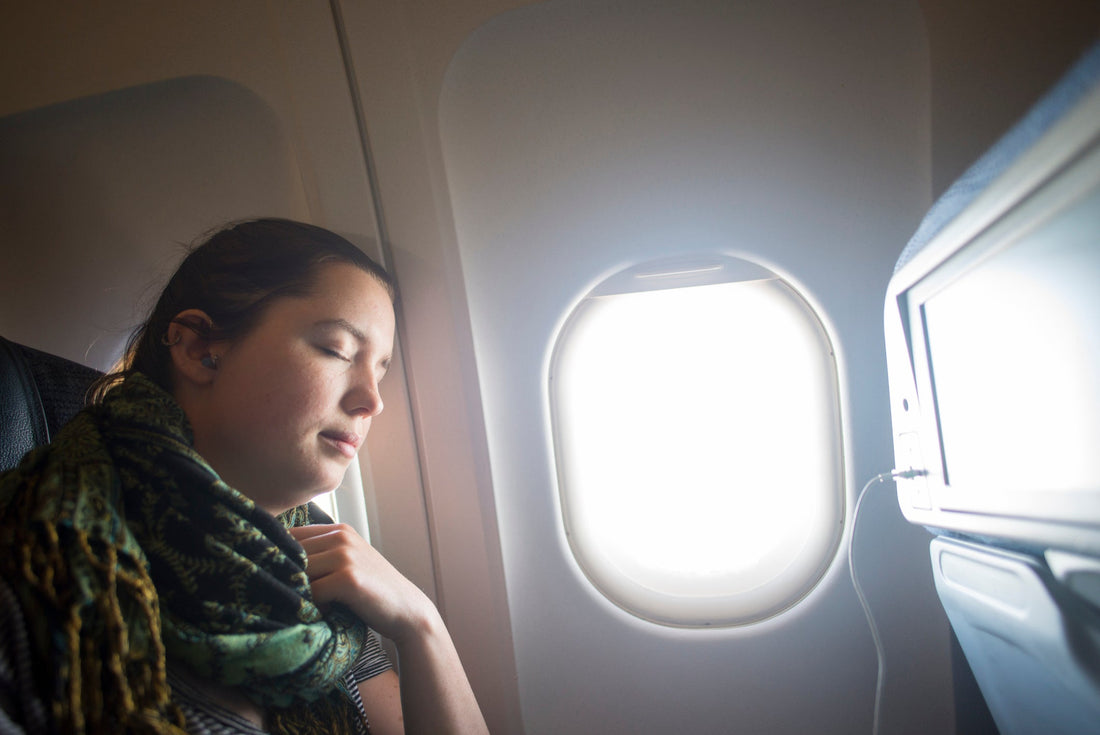Read Time: 3 min | Categories: Mental Health and Sleep
5 Tips on How to Get Over Jet Lag
Webber Naturals
Share this article
Jet lag, also known as desynchronosis, can occur when individuals travel across several time zones. Normally, our bodies are regulated by an internal clock, or circadian rhythm, that regulates our sleep-wake cycle, eating patterns and body temperature.
Melatonin is a key neurohormone that helps regulate the body’s circadian rhythm. When we travel to different time zones, this normal rhythm becomes disrupted and we may have difficulty adjusting to the new time zone.
Being out of sync can lead to jet lag, which includes symptoms such as disturbed sleep and early waking, fatigue during the day, difficulty concentrating, changes in mood, digestive upset, bowel changes, headache and nausea. Thankfully jet lag is temporary and most people can recover in a few days, but this depends on the person and the number of time zones that have been crossed.
In addition, the direction in which we travel can affect how we adjust. For example, when we travel east, we “lose” time and have less opportunity to adjust to the current time zone. In contrast, travelling north, south or west does not usually cause as much disturbance to our internal clocks.
Here are 5 key ways to help you beat jet lag on your next trip:
- Tip #1 – Adjust to the time zone you’re travelling to ahead of time. Making small adjustments to your sleep and wake routine before travelling, even by an hour or two, can help you overcome jet lag symptoms.
- Tip #2 – Supplement with melatonin. Research has shown that supplemental melatonin can help increase total sleep time and reset the body’s clock in cases where jet lag has disrupted the circadian rhythm [1,2] Webber Naturals carries a range of melatonin products in various strengths and sizes. The quick-dissolve sublingual tablets are easy to take and deliciously flavoured.
- Tip #3 – Grab a light snack before bed. Eating foods such as bananas, pineapple, tart cherries and ginger can help increase melatonin levels and promote better sleep.
- Tip #4 – Expose yourself to light – or not! Since your circadian rhythm is affected by light, you can beat jet lag by exposing yourself to light, or avoiding it, at the right times. Natural contact with sunlight or a light box, and avoiding light by staying indoors, can help you adjust to the current time zone and reduce jet lag symptoms.
- Tip #5 – Avoid alcohol and caffeine. These substances can impact your sleep quality and energy, so minimize their intake throughout your trip.
Remember that light physical activity, regular stretching and resting when possible can also help minimize jet lag on your next adventure!
Disclaimer: This information is provided for educational purposes only and is not intended for self-diagnosis or self-treatment of conditions that should be interpreted and managed by a qualified health care provider.
